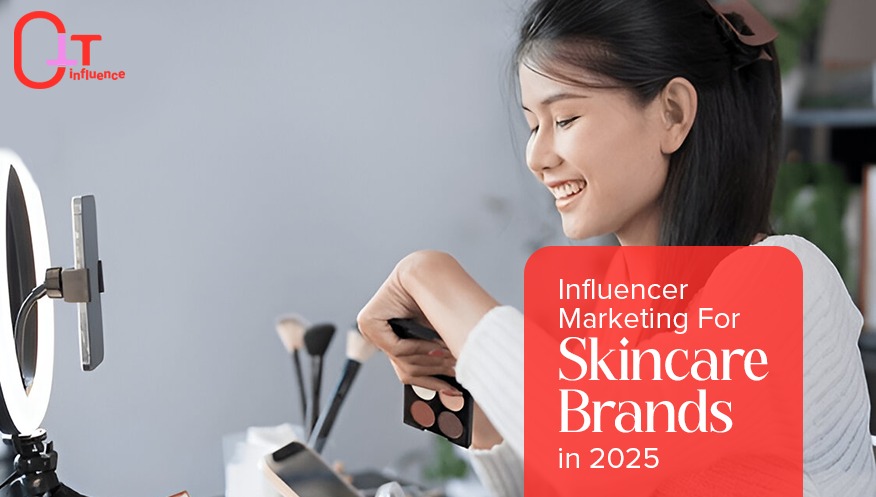
People buying skincare and beauty products today don’t just trust fancy advertisements or celebrities anymore. Instead, they look for honest stories and real experiences from everyday people. This is why influencer marketing has become one of the most effective ways skincare brands reach customers.
The Power of Real Stories
Whether it’s dealing with acne, dark spots, or aging skin, people want real solutions from real experiences. That’s why in 2025, skincare brands are working more with small but trusted influencers like micro, nano, and medical experts, who might not have millions of followers but are trusted by their communities.
What makes influencer marketing special now is the focus on being genuine, not just showing perfect looks. Customers want to see how a product really works on bare skin over time and if it really delivers results. When influencers share honest and open stories, skincare brands don’t just get attention, they earn trust.
Beyond Numbers: The Power of Niche and Community
Having lots of followers is not the only thing that matters anymore. In 2025, what counts more is how engaged the audience is, the stories being shared, and how well a community connects with a brand. For skincare brands, this means working with influencers whose followers match the brand’s values, ingredients, and skincare beliefs. For example, a brand that focuses on repairing the skin barrier would benefit from partnering with a skincare expert or esthetician who talks about skin health and barrier science.
These influencers don’t just bring visitors to the brand, they build trust by educating people about the products, how to use them, and what results to expect.
Long-Term Collaborations
Skincare doesn’t work instantly, and influencer marketing is not just a one-time thing either. Brands are now focusing on long-term partnerships that show how skin improves over weeks or months. This lets followers see real progress, results, and build stronger connections with both the influencer and the product.
With ongoing collaborations, brands become part of people’s trusted daily routines, not just a short-lived trend. Whether it’s applying sunscreen in the morning or serum at night, seeing trusted influencers use the products regularly helps people remember the brand and stay loyal to it.
Using Multiple Platforms
Instagram is still popular for beauty content, but YouTube has also become important for influencer marketing. YouTube’s longer videos are great for explaining how ingredients work, while its Shorts can create viral and fun stories.
Skincare brands use many types of content, from unboxing videos and day-to-night skincare routines to product explanations and dermatologist reviews. Influencers are becoming storytellers who teach, entertain, and keep their audience engaged all at once.
Transparency is a Must
Today’s customers know a lot and want to see clear information. They check ingredients, want proof that products work, and expect influencers to be honest about paid promotions. In 2025, skincare influencer marketing is all about honest talks, clear disclosures, and sharing what a product can really do.
It’s not about being perfect. It’s about being real, like showing how a hydrating toner helps dry skin or explaining that a retinol cream might cause some breakouts before the skin gets better. Being open like this builds trust and makes the brand feel genuine.
Looking Beyond Likes
Influencer marketing today is not just about counting likes and shares. Brands now look at how people engage, the tone of comments, how many people buy after campaigns, and even how many visit stores in person. These details help brands improve future campaigns and spend money wisely. Using influencer content on brand websites, newsletters, and online stores also keeps the message strong and lasting across different places.
The Future: AI, Personalization, and Purpose
In 2025, technology is making influencer marketing smarter. AI tools help brands find the right influencers by analyzing their audience, content style, and tone of voice. This ensures a better match and more effective campaigns. Personalized campaigns are also becoming more common. Brands now create content based on skin type, local weather, or lifestyle habits, making the influencer’s message feel more relevant and relatable.
At the same time, more campaigns are focused on a bigger purpose. Influencers are helping brands talk about important topics like using less plastic in packaging or raising awareness about skin issues. This shift helps brands connect with people through meaningful stories, not just sales.
Conclusion
Today, influencer marketing for beauty brands is about more than just selling products. It’s about building relationships, educating customers, and earning trust in a busy market. For skincare brands, this means choosing the right influencers, working together long-term, and sharing honest stories across different platforms. As technology and trends change, one thing stays the same: real stories and real results always matter in skincare.


Reach Out to Us and Amplify Your Brand's Voice!